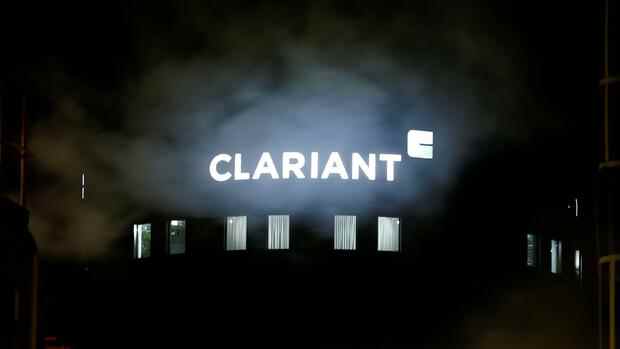Zurich Conrad Keijzer is not easily ruffled. The Clariant boss can still see something positive in the chemical company’s worst crisis in years. On Monday, Clariant shocked its shareholders with the news that the company had to postpone the annual financial statements because a special internal audit was investigating allegations of balance sheet manipulation. The share price collapsed by more than 20 percent.
However, Keijzer says in an interview with the Handelsblatt: “I’m glad that our own employees drew attention to the problems.” Internal whistleblowers had started the investigation in September last year. “It confirms to me that we have a culture in which problems are discussed openly,” says Keijzer.
Despite months of research, the investigation has not yet been completed. Forensic experts from Deloitte and lawyers from the law firm Gibson, Dunn & Crutcher are investigating allegations that Clariant employees misbooked provisions, among other things, in order to polish the margin. In this way, the group’s ambitious margin targets should be met, at least on paper.
>>> Read here: Clariant investigates possible balance sheet manipulation – share collapses by 20 percent
Top jobs of the day
Find the best jobs now and
be notified by email.
The allegations weigh heavily, so Keijzer asked for understanding of the long duration of the process: “The internal investigation has largely been completed, but it was not possible to provide PwC with the necessary security, so that they could not sign the annual financial statements.”
With an ongoing forensic investigation potentially affecting accounting, it is industry practice for auditors to await the investigation before signing off on an opinion.
There are penalties from the Swiss stock exchange Six
Keijzer also indicated that an expansion of the investigation has led to delays: “In the end, the amount of data that had to be viewed was too large to be ready in time. These investigations must be conducted carefully and take time.” The allegations were made in September. How expensive the internal investigation will be for Clariant also depends on how long the annual report is delayed. The Swiss company, which is listed on the stock exchange, faces penalties from the Swiss stock exchange Six if deadlines are missed.
Clariant may have to correct the financial statements for 2020. In addition, further past annual financial statements could be in doubt. However, the Clariant boss emphasizes that sales and cash flow are not affected. Keijzer also considers the effects for the most recent financial year to be manageable: “At the moment we cannot say whether and to what extent the Ebitda margins will differ. However, we assume that the Ebitda margin for the continuing operations will be 16 to 17 percent in 2021.”
The possible manipulation of important balance sheet ratios such as the Ebitda margin is also explosive because Clariant has completed an extensive restructuring of the group and sold numerous business areas in the past two years. The Ebitda margins are usually used to determine sales prices.
However, Keijzer emphasizes: “So far we have no indications that business areas that we have sold are affected.” The transactions, such as the chemical dyes and pigments business recently, which went to the German Heubach Group, have been completed.
Personal consequences on the top management level have not yet been discussed. Long-term CEO Hariolf Kottmann and long-time CFO Patrick Jany have not been charged so far. “We have no indication that the previous CEO or CFO was involved,” Keijzer clarifies. He will do everything to ensure that such a scandal is not repeated. “This incident is a reminder that we must continue to increase our focus on security and compliance,” he said. “We have around 11,500 employees. The vast majority have high ethical standards. It is a very small group that may have broken rules.”
Clariant has had turbulent years
The allegations overshadow a successful first year for Keijzer at the helm of the company. Clariant is one of the larger specialty chemicals manufacturers in Europe. The company was formed in 1995 as a spin-off from the then pharmaceutical manufacturer Sandoz. The Swiss are very strongly represented in Germany. “The core business has developed very strongly,” assures Keijzer. “We continue to expect that we will achieve our goals for this year.” In his view, the restructuring of the group and the exit from smaller business areas have been completed. Now is the time to start growth again.
The plants in Germany, Gendorf and Frankfurt Höchst play an important role. “Germany is a key location both for production and for research and development,” emphasizes Keijzer. In Gendorf, Clariant has just expanded its production of ethylene oxide, an additive for many consumer goods. Clariant is also currently planning to expand the production of important chemicals in Frankfurt.
Höchst is a strategically important location, emphasizes Keijzer. Therefore, a sale of the stake in the operating company of the chemical park, Infraserv, is not an issue for him at the moment. “There are no active talks about selling our shares in Infraserv,” says Keijzer.
More: Clariant investigates possible balance sheet manipulation – share collapses by 20 percent
